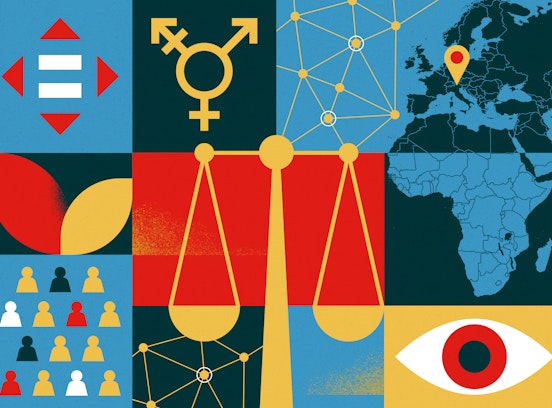Center for Advanced Studies - UNESCO Chair - News & Events - The need for a younger and more diverse leadership is evident
The need for a younger and more diverse leadership is evident
Leading personalities from Africa, the USA, Austria, and South Tyrol spoke at Eurac Research on new forms of partnership between Africa and Europe
It is the role of science to shed light on topics from a new perspective. The first African-South Tyrolean Leadership Forum, organised by the Center for Advanced Studies of Eurac Research, aimed to do just that by inviting experts from academia and practice to Bolzano to discuss leadership in times of change. The focus was on the unique challenges of two realities with very different structures and dimensions: Africa and South Tyrol.
Africa is considered the "continent of the future", especially with its ambitious, young population. The average age is just over 18. "A demographic feature that is not reflected in leadership," highlighted Ismaila Quedraogo, EU4EU Scholar at Eurac Research, and William Mensa Tsedze, Africa Programs Director, Earth Guardians: "Two-fifths of leaders are over 70 years old. Manuela Bertagnolli, President of the Young Entrepreneurs in South Tyrol, also underlined the need to involve young people in decision-making positions early. A particular focus of the conference was on female leadership and women in postcolonial contexts. Gloria Chuku, Professor of Africana Studies at the University of Maryland, spoke in Bolzano about the feminisation of poverty. In recent decades it has become clear that women own disproportionately less even though they work more and longer than men. Most of their work remains unpaid and poorly remunerated.
Diversity as the key to innovation and sustainable development
Fifty percent of Africa's population is female. It is crucial to recognise the full potential of women to achieve economic, social, and political progress in African nations, stressed Hellicy Ngambi, Professor of business leadership and founder of the RARE (Responsible, Accountable, Relevant, Ethical) principle for values-based leadership. "Africa must learn to live and work together, to respect differences, and to recognise and use diversity as an advantage of the continent." In South Tyrol, diversity in leadership positions also looks meagre. "Only 18 percent of companies are run by women. The share of women in politics is barely 11 percent," as Susanne Dammer, expert for Diversity, Equity & Inclusion Management, stated. Yet studies clearly show that companies with gender diversity at the management level are more profitable and 21 percent more likely to outperform the national average.
The desire for new leadership
Sadio Barry, presidential candidate in Guinea, spoke about the need for new leadership in transition countries. It is not only the slave trade and territorial fragmentation that cause the misery and underdevelopment, that still prevail half a century after colonisation. South Tyrol had also experienced the consequences of arbitrary border drawn without regard for the population. In Africa, the elites and the old political class are also to blame. "The African countries need new politics that are aware of the global problems, less complex, less corrupt, better educated and more dynamic," Barry emphasised. Thomas Spielbüchler, Senior Lecturer at the Institute for Modern History and Contemporary History at the University of Linz, shared this assessment: "In Europe, there are 27 opinions on every problem – in Africa, 55. So the trust in 'change from above' is not clouded for nothing. The desire for new leadership is evident. This drive comes from society - from a participating, engaged, interested society. Civil society."
Hans Karl Peterlini, Head of the UNESCO Chair Global Citizenship Education - Culture of Diversity and Peace, and Robert Mudida, Director of Research at the Central Bank of Kenya, also took part in the final panel discussion. The conference was organised by the UNESCO Chair in Anticipation and Transformation Eurac Research. Introductory speeches were given by Roland Benedikter, UNESCO Chairholder and Co-Head of the Center for Advanced Studies, and Harald Pechlaner, Head of the Center. "We need Africa, not the other way around" was the tenor. Welcoming addresses were given by Roland Psenner, President of Eurac Research, and Patrizio Bianchi from the official association of the 43 UNESCO Chairs Italy ReCUI.










